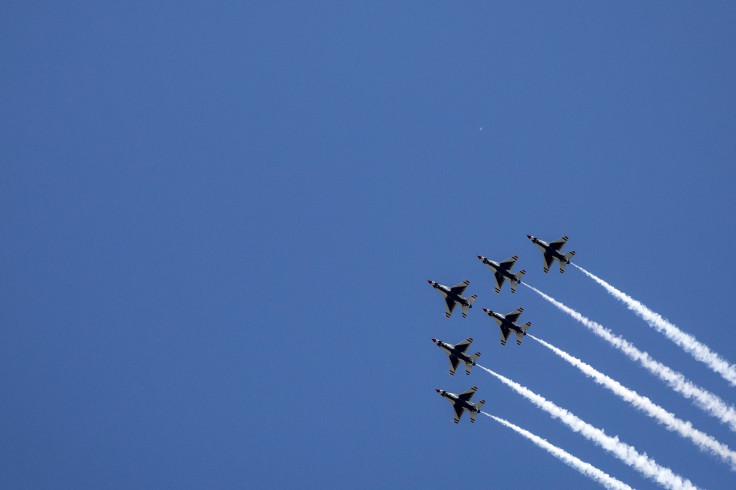US Air Force Inches Closer To Accepting Transgender Service Members By Making It Harder To Discharge Them

On Thursday, the U.S. Air Force announced it would make it harder to discharge transgender service members, making it a little more difficult to kick people out of serving their country based exclusively on their gender identity. The move comes two months after the U.S. Army made a similar gesture as the Pentagon mulls allowing transgender people to serve openly.
"Though the Air Force policy regarding involuntary separation of gender dysphoric Airmen has not changed, the elevation of decision authority to the Director, Air Force Review Boards Agency, ensures the ability to consistently apply the existing policy," Daniel Sitterly, a top Air Force personnel official, said in a statement to USA Today.
The move comes amid a rapid change in public opinion regarding members of the LGBT community. In 2011, the U.S. military stopped discharging LGBT troops, but people diagnosed as transgender (meaning they feel strongly that they are not the gender expressed by their physical characteristics) could be discharged on medical grounds. The Pentagon is expected to rule later this year on whether to allow transgender troops to serve openly.
Now, that decision to discharge transgender service members has to be reviewed and approved by officials at Air Force headquarters in Virginia, a process similar to how the Air Force dealt with the end of the “don’t ask don’t tell” policy, which banned openly gay, lesbian or bisexual individuals from serving their country. The decision to discharge transgender Air Force service members must be backed by the opinion of a psychiatrist or psychologist.
Though there’s no official figure for the number of transgender people serving in the U.S. military, advocates estimate that as many as 15,000 of 1.3 million U.S. troops have gender dysphoria and that dozens have been discharged on that basis alone, while the rest hide their gender identities.
Transgender people can have all types of sexual orientations, and sometimes opt for sex-change procedures. Great Britain and Israel are among the nations that allow transgender troops to serve openly.
© Copyright IBTimes 2025. All rights reserved.






















